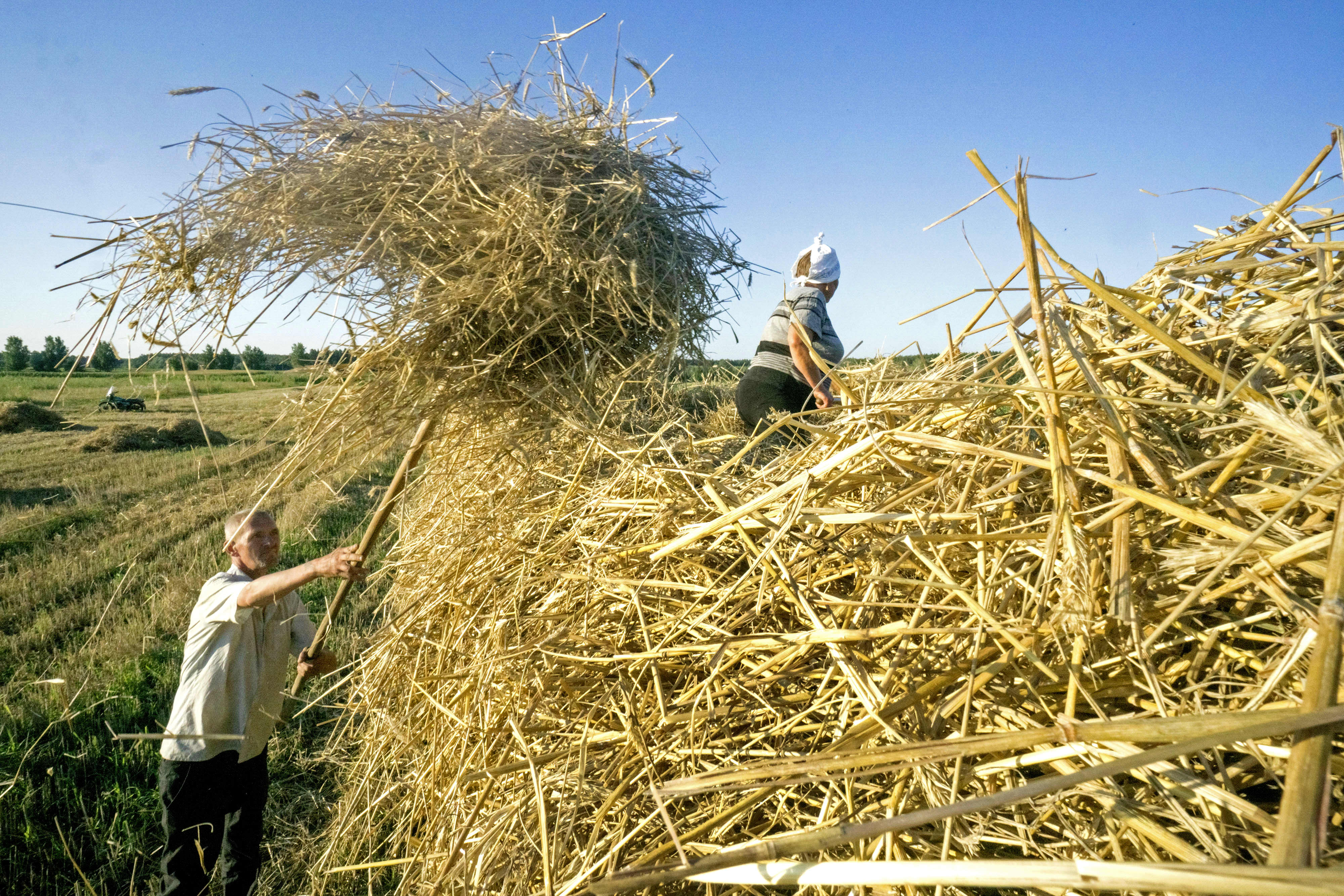How a Russian invasion of Ukraine, the ‘breadbasket of Europe,’ could hit supply chains

A summer wheat harvest in Chernihiv, Ukraine, on Thursday, Aug. 10, 2017.
Vincent Mundy | Bloomberg | Getty Images
Oil and gas prices are set to spike further as the Russia-Ukraine crisis escalates, but the impact on energy won’t be the only ramification.
From wheat to barley, and copper to nickel, analysts tell CNBC that supply chains are set to be disrupted as the crisis takes a turn for the worse.
Ukraine is considered the “breadbasket of Europe,” and an invasion would result in the food supply chain getting “hit hard,” said Alan Holland, CEO and founder at sourcing technology company Keelvar.
Russia and Ukraine are also big suppliers of metals and other commodities, analysts said.
Tensions between Russia and Ukraine reached fever pitch in the past few days as President Vladimir Putin ordered the Kremlin’s forces into two pro-Russian separatist regions in eastern Ukraine. It came after he said Russia would formally recognize the independence of Donetsk and Luhansk.
Food security
Ukraine produces wheat, barley and rye that much of Europe relies on, analysts said. It’s also a big producer of corn.
“Even though harvesting season is still a few months away, a prolonged conflict would create bread shortages [and increase consumer prices] this fall,” said Holland.
Ukraine’s currency began declining in value since Russian troops started gathering at the border. This will increase the cost of their exports.
Dawn Tiura
president, Sourcing Industry Group
In fact, it’s not just the European Union that will be hit — many nations in the Middle East and Africa also rely on Ukranian wheat and corn, and disruptions to that supply could affect food security in those regions, said Dawn Tiura, president at Sourcing Industry Group.
“China is also a big recipient of Ukrainian corn — in fact, Ukraine replaced the U.S. as China’s top corn supplier in 2021,” she said.
Wheat and corn prices were already soaring. Wheat futures traded in Chicago have jumped about 12% since the start of this year, while corn futures spiked 14.5% in the same period.
Food inflation has been rising, and could worsen if an armed conflict erupts.
“Rising food prices would only be exacerbated with additional price shocks, especially if core agricultural areas in Ukraine are seized by Russian loyalists,” said Per Hong, senior partner at consulting firm Kearney.
Metals and raw materials
Ukraine has steadily increased its exports over the years, and is now a “huge provider” of raw materials, chemical products and even machinery like transportation equipment, according to Tiura.
It’s also a major supplier of minerals and other commodities, analysts said.
“Ukraine’s currency began declining in value since Russian troops started gathering at the border. This will increase the cost of their exports,” Tiura added.
Russia also controls about 10% of global copper reserves, and is a major producer of nickel and platinum, according to Hong.
Nickel is a key raw material used in electric vehicle batteries, and copper — widely seen as an economic bellwether — is extensively used in electronics manufacturing and construction of homes.
“The U.S. chip industry heavily relies on Ukrainian-sourced neon and Russia also exports a number of elements critical to the manufacturing of semiconductors, jet engines, automobiles and medicine,” Hong said.
Impact on Germany
While most of the European Union would be affected by the escalating crisis, Germany would be especially hard-hit.
Germany derives most of its energy needs for manufacturing and electricity from the natural gas it gets from Russia, said Atul Vashistha, chairman and CEO of supply chain risk intelligence firm Supply Wisdom.
“If tensions continue to rise and we see an increase in disruptions due to a potential war or sanctions, it will hold back manufacturing production in Germany. Factories would need to curtail production which would cascade to manufacturing in other countries,” he told CNBC in an email.
Top exports from Germany include autos and auto parts, other transport equipment, electronics, metals and plastics.




